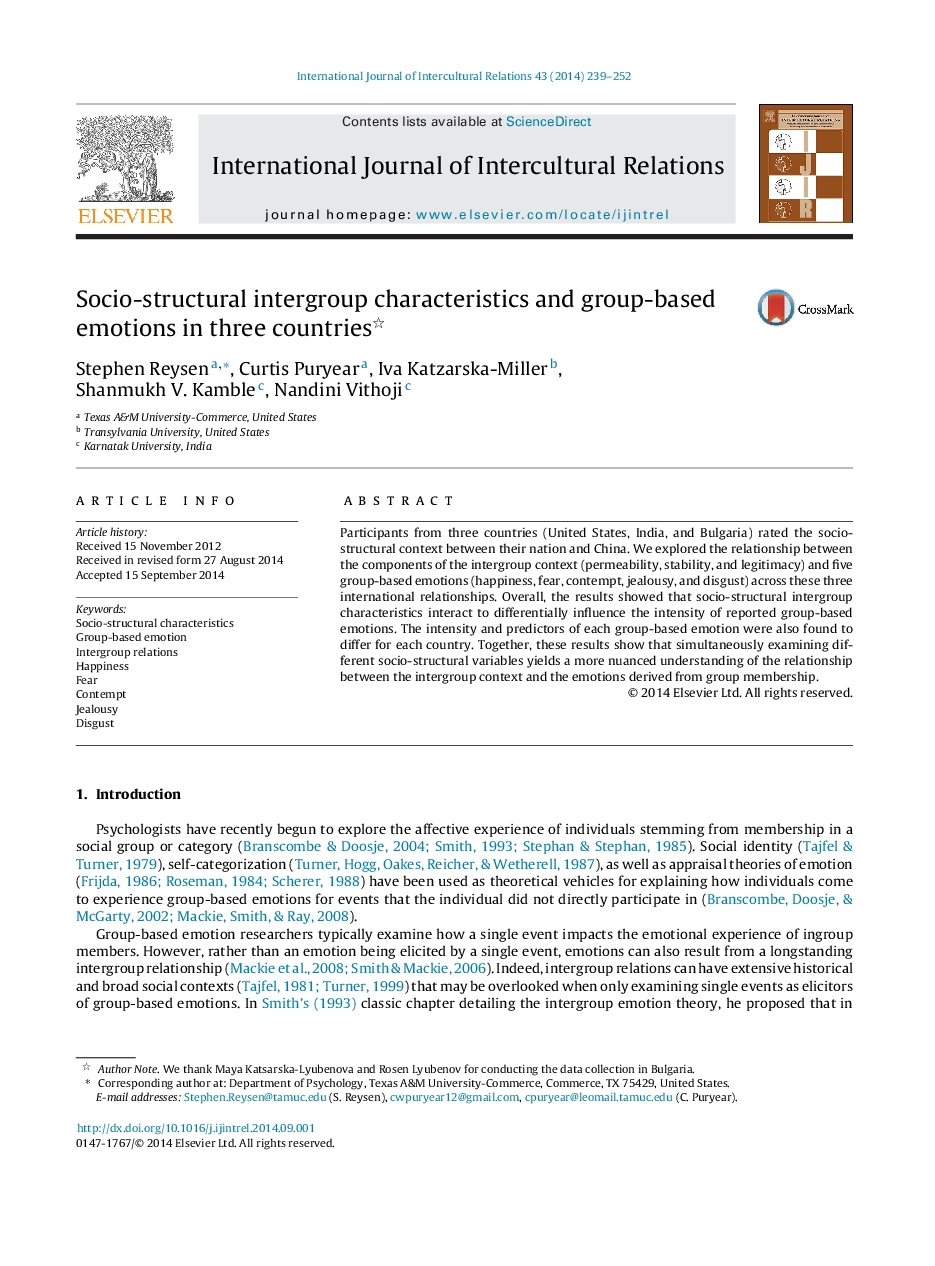| Article ID | Journal | Published Year | Pages | File Type |
|---|---|---|---|---|
| 947063 | International Journal of Intercultural Relations | 2014 | 14 Pages |
Abstract
Participants from three countries (United States, India, and Bulgaria) rated the socio-structural context between their nation and China. We explored the relationship between the components of the intergroup context (permeability, stability, and legitimacy) and five group-based emotions (happiness, fear, contempt, jealousy, and disgust) across these three international relationships. Overall, the results showed that socio-structural intergroup characteristics interact to differentially influence the intensity of reported group-based emotions. The intensity and predictors of each group-based emotion were also found to differ for each country. Together, these results show that simultaneously examining different socio-structural variables yields a more nuanced understanding of the relationship between the intergroup context and the emotions derived from group membership.
Related Topics
Social Sciences and Humanities
Business, Management and Accounting
Business and International Management
Authors
Stephen Reysen, Curtis Puryear, Iva Katzarska-Miller, Shanmukh V. Kamble, Nandini Vithoji,
